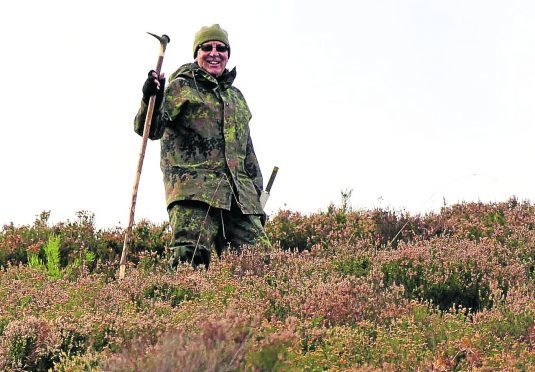Many people view retirement as a time to relax and take things easy. But, for one former London banker, that option never appealed.
Instead, following a hectic 38 years in banking, Trevor Colbourne, 62, decided to become a grouse beater on the moors around Loch Ness.
Mr Colbourne said: “I saw a post online saying ‘beaters wanted’, so I thought I’d give it a go. The first time I went, I didn’t even expect to get paid, but came home with a nice crisp £50 note.”
He admitted his current day-to-day lifestyle copntrasted favourably with what he was accustomed to in London.
As he added: “Having been on the corporate treadmill for over 38 years, this new phase of my life in retirement differs somewhat.
“The biggest draw for me was the teamwork, camaraderie and of course the humour.
“You mustn’t forget your sense of humour when gently being teased about how long it took you to scale that deer fence, or cross that bog.”
Beating also fits nicely with Mr Colbourne’s other pursuits, because he is studying philosophy with the Open University.
He said: “Another spin-off for myself is it gives you an awful lot of time to think. We are largely left to ourselves, to our own thoughts.”
“The wonderful ‘outdoor office and gym’ with very limited mobile coverage was also another selling point.
“The individual benefits are second to none, but there is also a sense of contributing to the local economy which is hugely rewarding.”
“I would encourage anyone to try it as people from all backgrounds take part together.
“No previous qualifications are required, other than being able to wave a flag vigorously whilst walking in mostly straight lines as directed by the gamekeepers.”
Though happy in the banking sphere, he felt he did not have enough time on his hands to pursue his interests in life.
Recalling a poem called ‘Leisure’ by W H Davies, Mr Colbourne said: “It really sums up a lot of my thinking for a number of years.”
Now when he takes to the hills, he always carries a copy of the poem which aptly sums up his view not just of retirement but life.
In quoting a line from it, he added: “A poor life this, if full of care, we have no time to stand and stare.”
